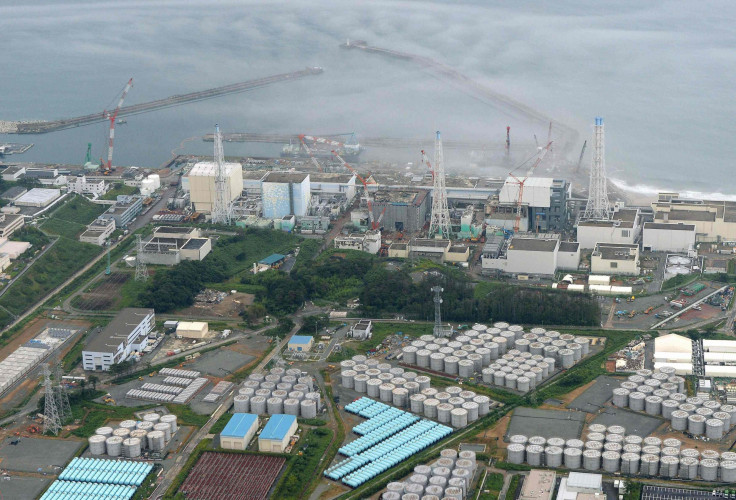Japan’s Government Announces $470M Clean-Up Plan to Contain Contamination From Fukushima Nuclear Plant, Ahead Of IOC’s Decision On Tokyo’s Bid To Host 2020 Olympics

Japan’s government, on Tuesday, announced a $470 million (47 billion yen) plan to contain radioactive leaks from the tsunami-stricken Fukushima nuclear power plant, after it took over clean-up operations from the plant’s operator, just days ahead of a decision from the International Olympic Committee, or IOC, on the 2020 Olympic Games venue.
"The government needs to resolve the problem by standing at the forefront," Prime Minister Shinzo Abe told a meeting of his nuclear disaster response team, Agence France-Presse, or AFP, reported.
"Discarding the current, impromptu response, we will set up our basic policies for a fundamental resolution of the contaminated water problem,” Abe added, chiding the plant’s operator Tokyo Electric Power Company, or Tepco, for its haphazard management of the crisis.
The measures come just a few days ahead of a scheduled meeting of the IOC, in Argentina, to decide which city will host the 2020 Olympics, for which Tokyo has also bid, along with Istanbul and Madrid. Observers warn that the crisis at Fukushima, which lies just 245 kilometers (152 miles) east of Tokyo, could adversely affect Japan’s bid.
"The world is watching to see if we can carry out the decommissioning of the Fukushima nuclear power plant, including addressing the contaminated water issues," Abe told cabinet ministers who met to approve the plan, Reuters reported.
However, observers point out that the current plan, which includes freezing the soil underneath the wrecked plant to prevent leaks and decontaminating the stored water used for cooling the melted nuclear rods, is only a temporary solution to the problem.
According to experts, the clean-up operations and decommissioning of the plant -- it was hit by a giant tsunami triggered by an earthquake in March 2011, which damaged its back-up generators and cooling system leading to a meltdown of its reactors -- would take decades and more money than is being pledged now.
According to the new plan, the government intends to lay pipes vertically underneath the reactors and run refrigerating agents through it to build a massive wall of frozen earth around the reactors to contain contaminated water from mixing with ground water channels. The project is expected to take two years and cost 32 billion yen. Another 15 billion yen will be spent on decontaminating radioactive water currently stored in hundreds of huge tanks around the facility, AFP reported.
However, the core issue of decommissioning the reactors by neutralizing the melted fuel rods and disposing the thousands of tons of radioactive water that have accumulated in the process of cooling the reactors remains a major challenge. Both Japan’s government and the plant’s operator, Tepco, have been struggling to cope with the issue as there is no proven technology to achieve this feat.
In August, after months of denial, Tepco admitted that the radioactive water leaking from the plant’s storage tanks and underground tunnels had reached the Pacific Ocean. Tepco has come under increasing criticism for its inability to handle the crisis, after reports suggested that radioactive leaks from its underground tunnels and water storage tanks are hurting the ecosystem around the prefecture and even affecting neighboring nations.
"At a moment when international public opinion is worrying about the long-term consequences of repeated leaks at the site, Tokyo seems to obeying the short-term logic of waiting until the Olympics decision is over. A more sustainable option might be to come out now, in Olympic spirit, with a strong decision about open, welcoming arms for international support to confront the unprecedented challenges of stabilizing the site," Mycle Schneider, an independent nuclear energy analyst, told Reuters in an emailed statement.
However, Trade and Economy Minister Toshimitsu Motegi, said at a press conference, that the current move was not prompted by the IOC's upcoming decision and noted that the leakage of radioactive water to the ocean will not be a environmental threat to other nations as sea water would dilute the contamination.
© Copyright IBTimes 2024. All rights reserved.












